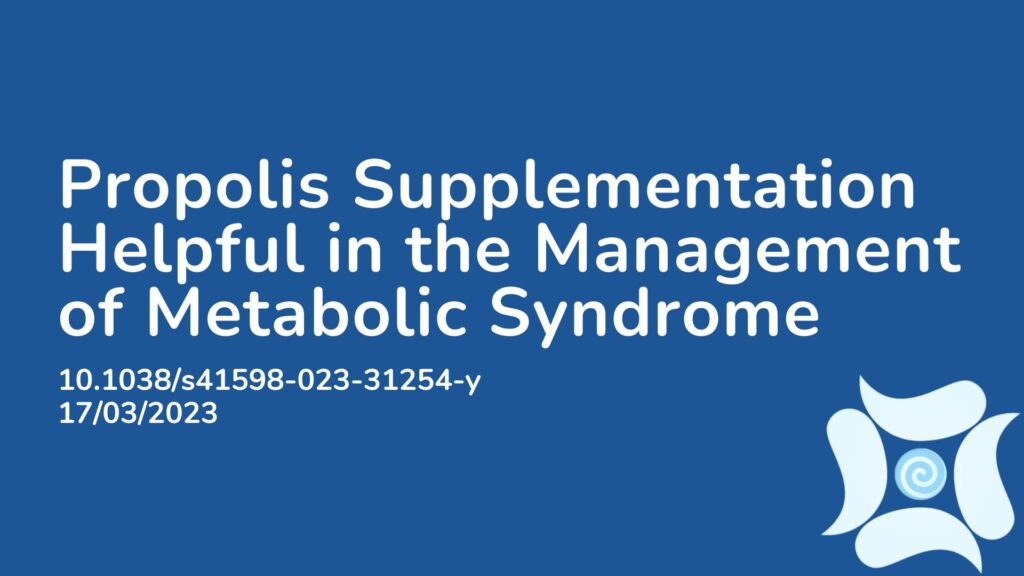Summary:
Metabolic syndrome (MeS) is a complex disorder yet is increasingly common in western countries. It is characterised by impaired fasting blood glucose, abdominal obesity, hypertension and high cholesterol. People with MeS are at risk for various conditions such as cardiovascular diseases, cancers and type 2 diabetes. The main treatment approaches for MeS are dietary changes and increasing physical activity, however this is often unsuccessful due to poor compliance. Since plants contain antioxidants which are beneficial to improve the health of people with MeS, this study looked at propolis, a natural product derived from a bee hive, as a potential intervention. The researchers assessed the effects of propolis as a natural and safe agent to use in MeS and how it impacted quality of life and mood in individuals with MeS. Sixty-six patients with MeS were recruited to the study and randomly assigned a 250mg propolis extract tablet, or a placebo. The propolis supplementation lead to a significant reduction in waist circumference as well as an increase in physical functioning and general health, however not specifically to the parameters measured in MeS. The findings reported that propolis can be effective in decreasing weight and improving physical health and quality of life.
Abstract:
Metabolic syndrome (MeS) is a common multifaceted disorder. Plants contain antioxidant bioactive compounds, which are beneficial to improve the health condition of patients with MeS. Propolis is a hive natural product that is composed of various constituent. We aimed to assess the effects of Iranian propolis as a natural and safe agent on indicators of MeS, quality of life and mood status in individuals with MeS. In total, 66 interested eligible patients recruited to the present study. Participants were randomly assigned to consume a tablet at dose of 250 mg of propolis extract, twice daily for 12 weeks or placebo. Propolis supplementation could lead to a significant reduction in waist circumference (WC), increase in physical functioning, general health and the overall score of SF-36 compared with placebo group (P-value < 0.05). However, no significant differences were observed regarding other anthropometric indices and biochemical parameters between two groups (P-value > 0.05). The current study indicated that propolis can be effective in decreasing WC and improving physical health and quality of life, while had no significant effects on other components of MeS among subjects with this syndrome.
Article Publication Date: 17/03/2023
DOI: 10.1038/s41598-023-31254-y



